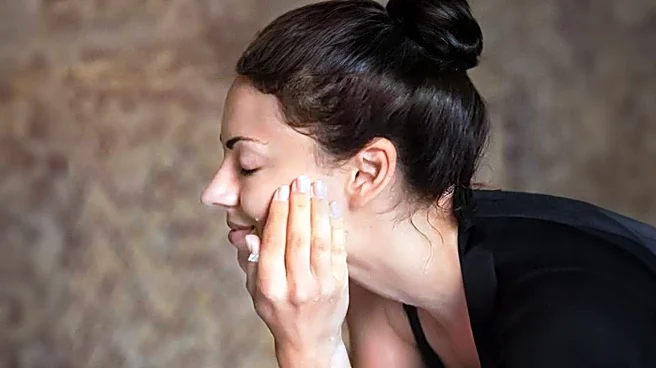What is the story about?
What's Happening?
Research suggests that rubbing itchy skin provides better relief than scratching, which can damage the skin and exacerbate the itch. Scientists found that rubbing or gently stroking the skin sends a counter-signal that inhibits the itch signal, preventing it from reaching the brain. This method can be applied to areas near the itch, offering relief without aggravating conditions like bug bites or psoriasis. The study highlights the effectiveness of using fingers or soft brushes to alleviate itching, providing a safer alternative to scratching.
Why It's Important?
The findings offer a new approach to managing itchy skin, which is a common issue affecting many individuals. By promoting rubbing over scratching, people can avoid skin damage and reduce the risk of infection or worsening of skin conditions. This research could influence dermatological practices and public health recommendations, encouraging safer methods for itch relief. It also provides insight into the neurological mechanisms of itching, potentially informing future studies on skin health and sensory perception.
What's Next?
Further research may explore the application of these findings in clinical settings, potentially leading to new treatment protocols for managing itchy skin. Dermatologists might incorporate these techniques into patient education, promoting healthier skin care practices. The study could also inspire additional research into the neurological aspects of itching and pain, contributing to a broader understanding of sensory processing.
Beyond the Headlines
The study raises questions about the cultural and psychological aspects of itch relief, challenging traditional practices like scratching. It also highlights the importance of understanding sensory signals and their impact on behavior and health. Long-term, this research could influence public perceptions of skin care and promote more mindful approaches to managing discomfort.














